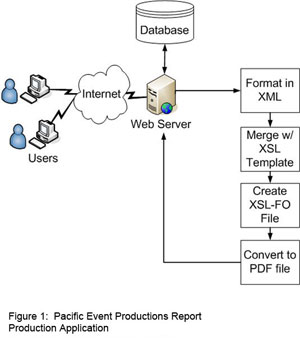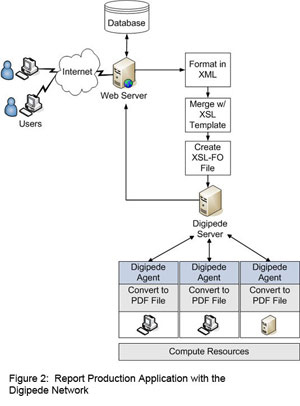Pacific Event Productions Accelerates Web Application
Put Your Best Information Forward
The Company
"We saved about $100,000 in hardware and software compared to alternate
solutions."
- Glen Boyer, Director of IT at Pacific Event Productions
Pacific Event Productions is one of the most successful special event production companies, serving local,
national, and international clientele in a variety of venues and exotic locations. The company creates
unique and memorable parties and conferences for Fortune 500 corporations, social organizations, and
private individuals.
To keep corporate and social events running smoothly, Pacific Events needs to deliver critical information to hundreds of employees and thousands of vendors and clients in a timely manner.
The Challenge
The company's management team recognized that its employees, vendors, and clients would be able to communicate more effectively if Pacific Events consolidated its applications and made the resulting functionality available through an easily accessible Web interface. The company invested in an integrated system that brought all of the tools together relatively quickly, but found that reporting such a broad variety of information in a useful format was a serious challenge.
While Web browsers are ubiquitous, using HTML to provide reports is far too limiting for many applications. Pacific Events settled on PDF files as the preferred format for providing useful, portable reports to its employees, vendors, and clients. The company's IT staff put together a simple system to:
- Extract requested data from the appropriate databases
- Format the data in XML
- Merge the resulting XML file with a pre-existing Template XSL (XSLT) file, resulting in an XSL-FO (formatted object) file
- Convert the XSL-FO file into a PDF file for viewing and downloading in a browser
 "The system worked fine, and our internal and external customers were pleased with the results—but the
remaining issue was performance and scalability," said Glen Boyer, Director of IT for Pacific Event
Productions.
"The system worked fine, and our internal and external customers were pleased with the results—but the
remaining issue was performance and scalability," said Glen Boyer, Director of IT for Pacific Event
Productions.
Figure 1 illustrates the process of producing a report on the Pacific Event Productions Web site. A "hit" on the Web server took a fraction of a second; similarly, extracting the requested data from the Microsoft SQL Server database was very fast. The remaining steps up through creating the XSL-FO file also took less than one second each. Transforming that file into a PDF document, however, took anywhere from five to 15 seconds.
This performance was deemed acceptable—for a single customer or event coordinator. Like many shared applications, though, the Pacific Event Productions reporting system experienced periods of high usage immediately before and after an event. When used simultaneously by several users, performance suffered and users became frustrated.
The Solution
 Pacific Event Productions discussed its process and needs with Digipede, which then proposed a strategy
for scaling out the processing-intensive portion of the data transformation process (see Figure 2). Using
the Digipede Network, the process of producing PDF files could be run simultaneously on multiple desktops
and servers already available.
Pacific Event Productions discussed its process and needs with Digipede, which then proposed a strategy
for scaling out the processing-intensive portion of the data transformation process (see Figure 2). Using
the Digipede Network, the process of producing PDF files could be run simultaneously on multiple desktops
and servers already available.
In Digipede's recommended approach, the most compute-intensive step is offloaded through the Digipede Network to idle desktops and servers. Each time the Web server needs to produce a PDF, it starts a job on the Digipede Network; any idle server or desktop computer then creates the document. If there are simultaneous hits to the Web site, different machines on the Pacific Events network handle those requests simultaneously.
By using existing machines to handle this crucial computation, Pacific Event Productions was able to scale their application easily and dramatically. As its user base and need for scalability grow, the company's solution can grow by simply installing more Digipede Agents on its existing machines.
Deploying the Digipede Network to scale out Pacific Event Productions' reporting application did not require a long implementation project, extensive retraining, or expensive consultants. The Digipede Network is radically easier to buy, install, learn, and use than competing grid solutions. No Digipede staff visited the Pacific Events office during the implementation; Pacific Events staff had the system up and running quickly on its own, with some telephone and email support.
Boyer continues, "With the Digipede Network we've been able to handle ten times the load on our Web application with no decrease in quality of service to our users. After deploying the Digipede Network, we were able to support far more simultaneous users without delays. And we saved about $100,000 in hardware and software licensing costs when compared to alternate solutions."
For years, grid computing has been deployed only in organizations with large IT resources. While a few large organizations benefit, this important technology has been out of reach for small and medium businesses and departments. Pacific Event Productions' experience shows that the Digipede Network brings the benefits to grid computing to a far wider audience.


